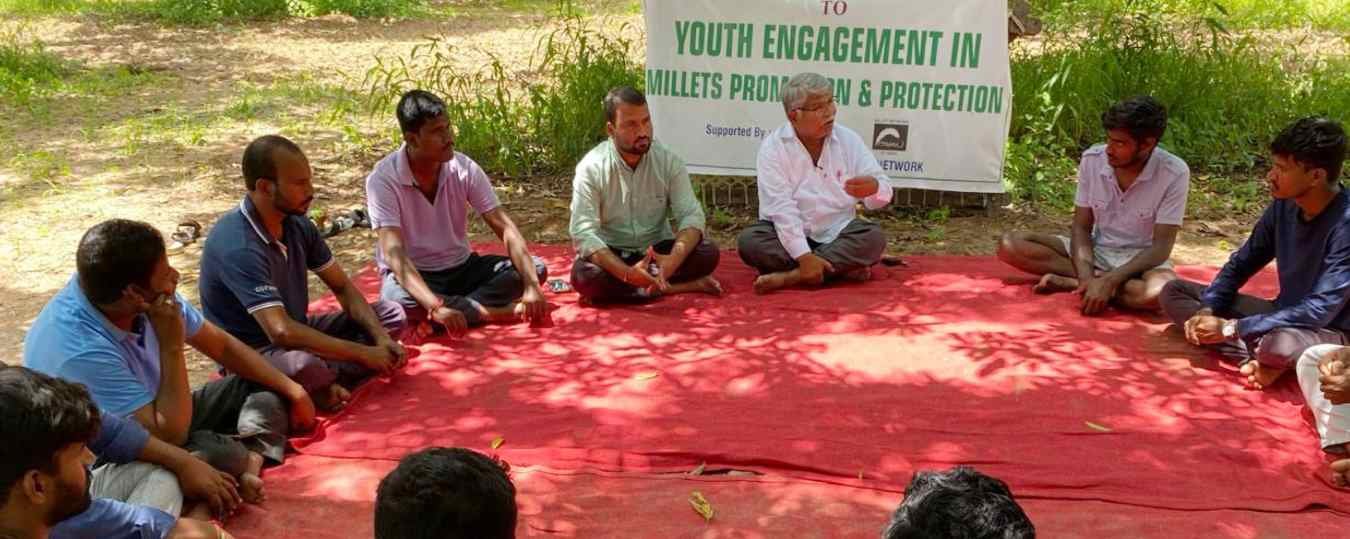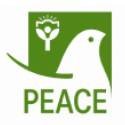
Millets
MILLETS - Supported by SWALLOWS, Sweden through D,D.S. Hyderabad
Millets are more than just traditional grains—they are nutri-cereals, climate-resilient crops, and a pathway to food security, nutrition, and rural prosperity. Recognizing this, PEACE (People’s Action for Creative Education) has launched a robust Millets Promotion Project across its operational areas in Telangana, particularly in Nalgonda, Siddipet, and Medak districts.
The initiative aligns with the Government of India’s millet mission, Telangana’s rural development push, and the global spotlight from the International Year of Millets (2023). PEACE is working with smallholder farmers, especially Dalit women, to reintroduce millets into local diets, promote organic and low-input cultivation, and build sustainable millet value chains through FPOs, MACS, and local entrepreneurs.
Project Objectives
Sustainable
-
- Revive traditional millet cultivation in dryland and semi-arid areas
- Promote nutritional security by integrating millets into household consumption and public food programs
- Enhance climate resilience and income generation for marginalized farmers
- Develop end-to-end value chains for millet production, processing, and marketing
- Strengthen women-led Farmer Producer Organizations (FPOs) for millet entrepreneurship
Geographic Focus
Location
- Districts: Yadadri Bhongir, Siddipet
- Target Groups: Small and marginal farmers, SC/ST families, women farmers organized into SHGs and MACS
Key Project Components
🌾 Sustainable Millet Cultivation
- Encouraging farmers to adopt traditional millet varieties (foxtail, little millet, barnyard millet, kodo millet, etc.)
- Promoting pesticide-free cultivation and low-input sustainable agriculture (LISA)
- Integrating millets into existing cropping systems to increase cropping intensity and resilience
🧑🌾 Farmer Training & Capacity Building
- ICAR-IIMR and local Krishi Vigyan Kendras supported technical training programs for millet production, harvesting, processing, and storage
- Workshops on seed selection, crop spacing, and soil health management
🛒 Market Linkage & Entrepreneurship
- Formation of women-led FPOs to aggregate millet produce and directly market it through:
- Rythu Bazaars
- Millet outlets
- School & ICDS supply chains
- Entrepreneur development in millet-based products such as:
- Millet flours, health mixes, ready-to-cook foods
- Traditional snacks like millet murukku, laddu, and dosa batter
🧺 Value Addition & Processing
- Support for small-scale millet processing units (cleaning, grading, packaging)
- Training in branding, packaging, and local marketing
- Facilitation of participation in Millet Melas, exhibitions, and online millet hubs
🏫 Nutrition Integration
- Advocacy for integrating millets into:
- Integrated Child Development Services (ICDS)
- Mid-Day Meals
- Public Distribution System (PDS)
- Awareness campaigns in schools and communities about the nutritional benefits of millets
💡 Policy & Advocacy
- PEACE actively contributes to district-level consultations for policy inputs on:
- Price support for millets
- Procurement through FPOs
- Subsidies for sustainable millet inputs
Impact Highlights
| Indicator | Status |
| Villages Covered | 40+ villages in 3 districts |
| Farmers Trained | 1,000+ |
| Acres Under Millet Cultivation | 500+ acres |
| Women Entrepreneurs Supported | 120+ |
| Processing Units Facilitated | 3 FPO-run mini processing units |
| ICDS & School Linkages | Initiated in 2 blocks |
Government and Institutional Linkages
-
- NABARD & D.D.S./SWALLOWS – Financial and institutional support
- Department of Agriculture, Govt. of Telangana – Inclusion in millets promotional schemes
- ICAR-IIMR – Technical backstopping and awareness events
- Food & Nutrition Board – Collaboration for ICDS millet integration
- Millet Export Promotion Forum – For potential overseas value chain expansion
Why Millets Matter
Millets are not just the past — they are the future of food and farming. With the challenges of climate change, soil degradation, and nutrition-related diseases, millets offer a holistic solution:
-
-
- Rich in protein, iron, and fiber
- Low glycemic index — suitable for diabetic and heart patients
- Require less water and thrive in poor soils
- Boost biodiversity and reduce pest outbreaks
- Reduce dependence on chemical fertilizers and pesticides
-
Vision and Philosophy Mr. Nimmaiah’s vision is deeply rooted in simplicity, community empowerment, and sustainability. His leadership style emphasizes grassroots involvement, collective action, and resilience in the face of challenges. His philosophy centers around the holistic upliftment of rural communities through participatory methods, sustainable agricultural practices, and education-based interventions.
– Mr. Nimmaiah, Executive Director, PEACE
